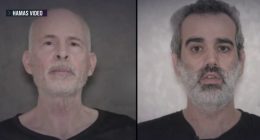The 2014 Booker nominee on her new novel about the family of Abraham Lincoln’s assassin, the ‘horrible secret’ of her sci-fi writing and her long period of despair
Karen Joy Fowler, 72, is the author of four story collections and seven novels, including The Jane Austen Book Club, adapted into a 2007 film, and the million-selling We Are All Completely Beside Ourselves, which was shortlisted for the Booker prize in 2014. Her new book, Booth, takes place in 19th-century America and follows six siblings of John Wilkes Booth through childhood and adulthood in the decades leading up to his assassination of Abraham Lincoln. Fowler, who in 2020 received a prestigious World Fantasy award for lifetime achievement, spoke to me over Zoom from her home in Santa Cruz, California.
What led you to write a historical novel about the Booths?
I began thinking about this book in one of my frequent moments of despair over whether there will ever be gun reform in this country. I’d already written a couple of short stories about the family, and John Wilkes Booth is the most famous man with a gun in all of American history. But I wasn’t interested in him so much as in the family: I wanted to ask what his assassination of Lincoln had done to their lives, whether they could have stopped it or seen it coming, and how culpable or innocent they were.
You portray the differences in their views of slavery…
I did already know Wilkes was a white supremacist who was vocal in his support of slavery, but I didn’t know what the rest of the family thought; they supported Lincoln and were mostly pro-Union but were largely quiet about what was obviously the greatest issue of the time. It’s interesting, I think, to look at it generationally. Their grandfather, father and mother came from England to settle in Maryland as adults, so they’d grown up without the institution of slavery all around them – the grandfather, Richard, was particularly shocked by it and actually participated in trying to help some enslaved people escape to the north. The father and mother, Junius and Mary Ann, also opposed it, but not with the same passion. And then the third generation – the one I focus on – grew up with it as an ordinary part of their community. How they made sense of that is a hard thing to get your head around.




